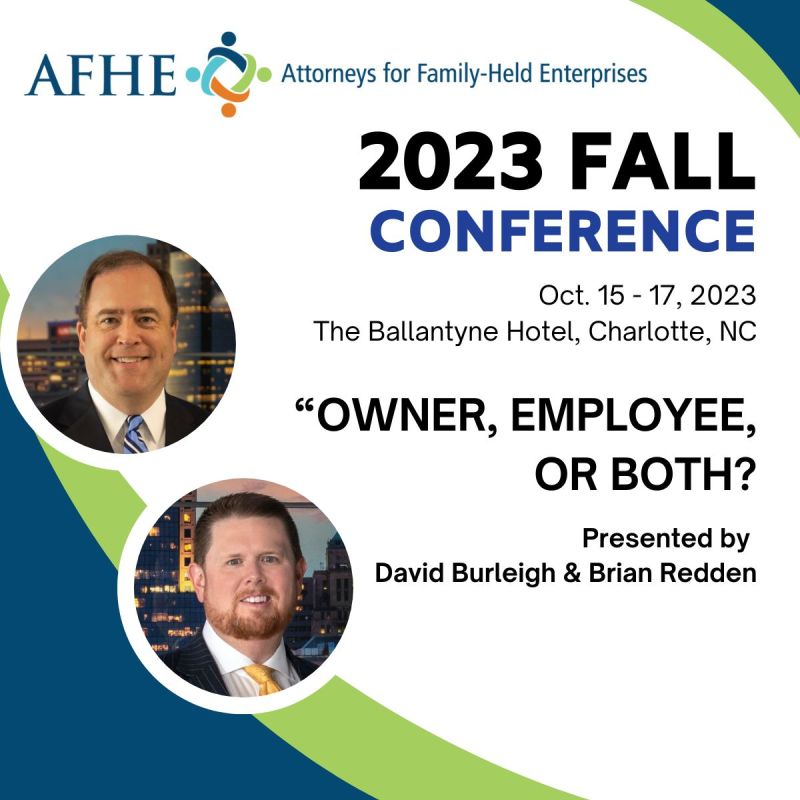What does it mean to be an “applicant” for a company?
An applicant is the person who applies to a state to set up the company. For example, if you are a company agent or employee who applies to the Ohio Secretary of State to set up a new LLC, you are the “applicant.” The same thing happens if you are the attorney or the CPA or applies to set up the new LLC – you are the “applicant.”
- Example: Your lawyer is responsible for setting up an LLC with the Ohio Secretary of State. The nature of the LLC’s business will bring the LLC under the Act. The law firm has a paralegal who assists with setting up LLCs. The lawyer and the paralegal must submit their BOI. You, as the client, need not submit your BOI as applicant (though you may need to as Beneficial Owner), but you are responsible for knowing who in the law firm is handling the filings.
Who is an “owner” and who is not?
“Ownership” includes both direct and indirect ownership, which is why the Act talks in terms of “beneficial” owners. A Beneficial Owner does not necessarily own the Reporting Company in his or her own name and may not be listed as an owner at all in the company’s records.
Example 1: You and your brother just bought a small manufacturing corporation from your father. The corporation employs 18 full-time equivalents, below the 20 full-time employee threshold. You and your brother are the only two shareholders. The two of you are the company’s Beneficial Owners, and you must submit your BOI.
Example 2: You are the manager of a manager-managed family investment LLC that generates less than $5 million a year in gross revenue, below the revenue threshold. You are not an owner but your wife is. As manager, you have responsibility to control, manage, or direct the LLC. You need to submit your BOI. So does your wife.
Example 3: You are a manager of a single-purpose family real estate investment LLC. You individually do not own any of the LLC. However, as manager you possess “substantial control” over the LLC, so you are a Beneficial Owner and you must submit your BOI.
Example 4: You are the sole owner of a property management LLC that has 20 employees and $8 million in annual income. Your LLC is exempt, because it meets both the employee threshold and the revenue threshold.
Example 5: Same as number three, except one of your employees quits and you are down to 19 employees. You need to submit your BOI, because you no longer meet the employee threshold. (Under the Act, either you are exempt or you are not, and if you are not, you must report.)
Example 6: You are an executive-level person who works for a manager-managed LLC that owns a real estate portfolio. The portfolio in this one LLC generates less than $5 million in distributable cash per year. You yourself are not an owner of the LLC and not a manager of it, but you have substantial influence over how the company gets its business done. You need to submit your BOI.
Example 7: You are an investor in a privately-held LLC that does not meet either the employee threshold or the revenue threshold, but you have the right to appoint 2 out of 5 of a board of managers that appoints the president. Although you do not have power to appoint a majority of the board, you could be deemed to have “substantial influence” over the LLC’s important decisions. You might need to submit your BOI.
Example 8: You are the trustee, but not a beneficiary, of a family trust that owns 25% of an LLC that has returns of about $2 million per year. Under trust law, the trustee is the legal owner of the trust’s assets. Because you are the legal owner under state trust law, you have control over the assets, and therefore you must submit your BOI.
Example 9: You and your siblings are beneficiaries of a family trust that owns 25% of an LLC that is not exempt. You are a beneficiary of the trust, but distributions from the trust are entirely at the trustee’s discretion and you have no power to demand a distribution. The trustee, as the person who controls the trust, is considered the owner of the LLC. The trustee must submit his or her BOI. You, as a particular type of beneficiary, do not need to submit yours.
Example 10: Your grandparents set up a successful real estate development company that is owned by trusts that benefit first your parents and then, at their deaths, you and your siblings. You do not have a right to distributions from the trust until your parents are deceased, assuming you are alive at that time. Nor do you have a power of appointment you can exercise right now. Your right to distributions is a “future or contingent interest” under the Act, and you do not need to submit your BOI (citation 1).
Example 11: Your family vacation property is owned in an LLC. You do not rent the property, and the LLC does not have any income, though the LLC owns a checking account to pay expenses. The purpose of the LLC is to facilitate transfer to your children at your death. Even though the purpose of the company is not to conduct business, because money flows through it, you probably need to report your BOI.
What if we own multiple business entities?
You must analyze the requirement to submit the BOI based on each separate entity. If you own multiple entities, you must evaluate each entity – each corporation, each LLC – in light of the requirements. To qualify for the Large Company exemption, you are not allowed to consolidate your employee headcount across affiliated companies. You must count employees on an entity-by-entity basis.
When does owner information needs to be updated?
A reporting company needs to update its owner information if a new owner comes on board. The owners are allowed to change their ownership percentages and not file an update. But if a new person becomes an owner, the company needs to update the FinCen. In the case where a non-charitable trust is the owner, if the trustee of the trust changes, the new trustee must submit his or her personally identifying information.
What if we shut down our company?
If you dissolve your corporation or LLC, you will need to notify the FinCen, which will keep the information for five years after the dissolution.
The law firm of BHMK provides SOLUTIONS based on experience that can help businesses thrive in an ever changing legal landscape.
Contact Us Today.
Join the Discussion | Upcoming Event

Citations
- Federal Register Vol. 87, No. 189, p. 59535.


